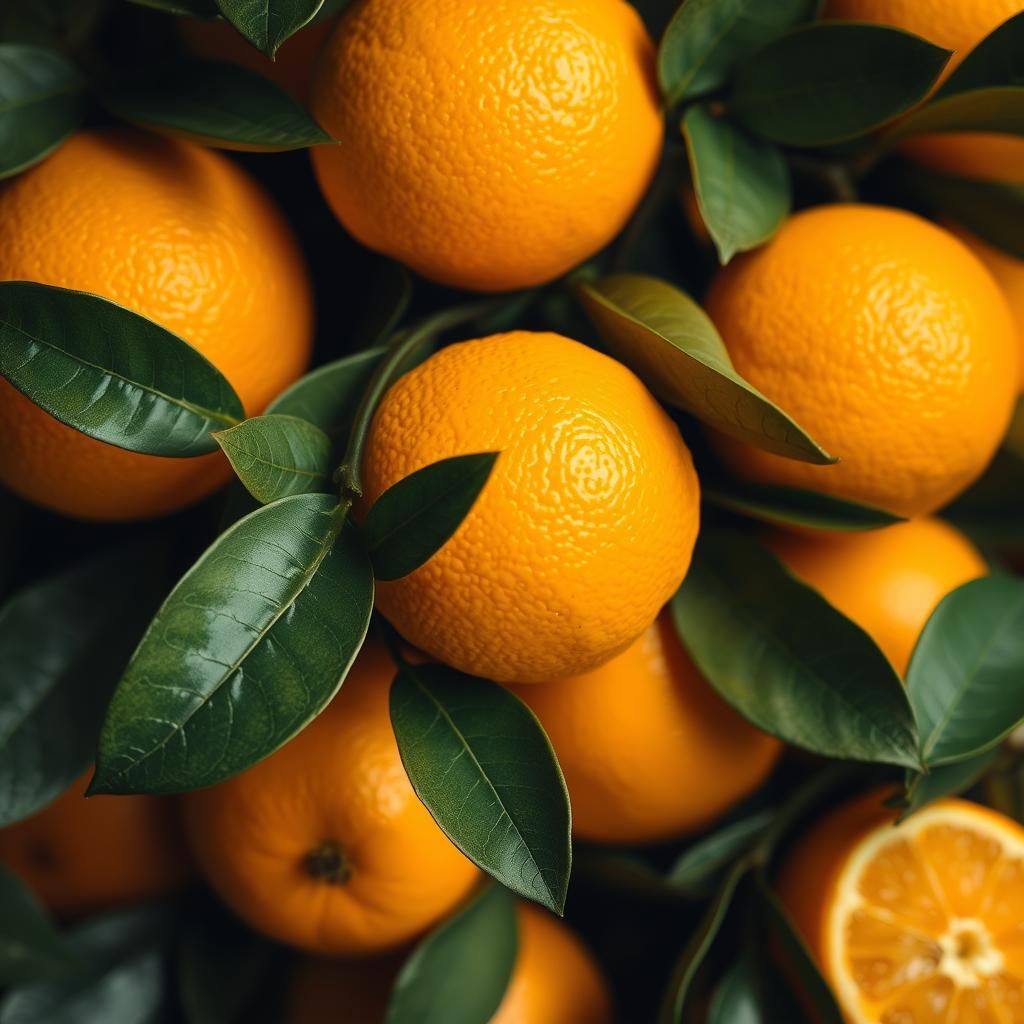Will Oranges Ripen Off the Tree? Discover the Truth About Citrus Ripening

When it comes to citrus fruits, one common question arises: can oranges ripen off the tree? This inquiry delves into the fascinating world of fruit maturation and the factors that influence the ripening process. Oranges, like many fruits, undergo complex biochemical changes as they develop, affecting their flavor, texture, and nutritional value. In this article, we will explore the science behind citrus ripening, understand the differences between tree-ripened and store-bought oranges, and provide insights for those eager to know the real truth about whether these vibrant fruits can continue to sweeten and develop their full potential after being harvested.
- Will Oranges Ripen Off the Tree?
- The Ripening Process of Oranges
- Several factors can influence the extent to which oranges may appear to ripen off the tree, including temperature, humidity, and the variety of the orange. Higher temperatures can accelerate the aging process, while lower temperatures can slow it down. Moreover, oranges picked at varying stages of ripeness will behave differently; those closer to maturity might show slight improvement in flavor when stored, but they will not reach the full potential they would have if left on the tree.Storage Conditions for Oranges
- Harvesting Techniques and Timing
- Flavor Profile of Tree-Ripened Oranges vs Off-Tree Ripened Oranges
- Understanding the Ripening Process of Oranges
- Questions from Our Readers
Will Oranges Ripen Off the Tree?
Oranges, like many other citrus fruits, do not continue to ripen significantly after they are picked from the tree. While they may change slightly in taste and texture due to ethylene gas production during storage, the principal compounds responsible for their sweetness and color develop primarily while they are still attached to the tree. This means that once oranges are harvested, their ability to ripen further is limited, and they won't achieve the same optimal flavor and juiciness as those that ripen fully on the tree. Therefore, it is recommended to allow oranges to stay on the tree as long as possible before harvesting for the best quality fruit.
The Ripening Process of Oranges
The ripening process of oranges involves the conversion of starches into sugars, making the fruit taste sweeter. During this time, the color of the rind changes from green to bright orange due to the breakdown of chlorophyll and the development of carotenoids. This process largely occurs while the oranges are still on the tree, aided by sunlight and proper nutrition from the tree's soil, which is essential for the fruit's development.
Several factors can influence the extent to which oranges may appear to ripen off the tree, including temperature, humidity, and the variety of the orange. Higher temperatures can accelerate the aging process, while lower temperatures can slow it down. Moreover, oranges picked at varying stages of ripeness will behave differently; those closer to maturity might show slight improvement in flavor when stored, but they will not reach the full potential they would have if left on the tree.
Storage Conditions for Oranges
Proper storage conditions can help maintain the quality of oranges that have been harvested. It is important to store them in a well-ventilated area, ideally at a temperature between 45°F and 48°F (7°C and 9°C). This can help delay spoilage and minimize ethylene production. High humidity levels can also prevent oranges from drying out, preserving their juiciness, but excessive moisture could lead to mold growth.
See also:
Harvesting Techniques and Timing
The timing and technique used for harvesting oranges play a crucial role in their development and quality. Oranges should be picked when they reach harvest maturity, which varies based on the variety. Using the correct harvesting tools, such as clippers, can minimize damage to the fruit and tree, allowing the remaining oranges to continue maturing effectively, thus ensuring better fruit production in subsequent seasons.
Flavor Profile of Tree-Ripened Oranges vs Off-Tree Ripened Oranges
Oranges that are allowed to ripen on the tree develop a more complex flavor profile compared to those that are harvested too early. Tree-ripened oranges tend to be sweeter, juicier, and have a richer taste due to the natural synthesis of sugars, acids, and aromatic compounds during their maturation process. Alternatively, those picked too soon may taste bland or overly acidic, lacking the balance that ripening on the tree provides.
| Aspect | Tree-Ripened Oranges | Off-Tree Ripened Oranges |
|---|---|---|
| Sweetness | High | Variable |
| Texture | Juicy | Dryer |
| Flavor Complexity | Rich | Bland |
| Color | Bright Orange | Greenish or Dull |
| Nutritional Value | Optimal | Reduced |
Understanding the Ripening Process of Oranges
Oranges, like many citrus fruits, undergo a biochemical process known as ripening, which is influenced by various factors including temperature, humidity, and exposure to ethylene gas. While oranges can develop some sweetness and flavor after being picked, they typically do not continue to ripen significantly off the tree. This is due to their nature as climacteric fruits, which means they do not respond well to the ethylene production necessary for ripening once detached from their source. Consequently, the best oranges are usually those that are fully matured on the tree, exhibiting optimal sweetness and juiciness.
The Difference Between Climacteric and Non-Climacteric Fruits
Understanding the difference between climacteric and non-climacteric fruits is crucial in the context of fruit ripening. Climacteric fruits, such as bananas and tomatoes, continue to ripen after they have been harvested due to their ability to produce ethylene gas. In contrast, non-climacteric fruits, including oranges, do not produce significant amounts of ethylene post-harvest, leading to minimal changes in taste and texture after being picked. Therefore, while some fruits can ripen off the tree, oranges generally rely on the tree for their ideal ripeness and flavor development.
Factors Affecting Orange Ripening
Several factors can influence the ripening process of oranges while they are still on the tree. These include sunlight exposure, temperature, and soil quality. Sunlight is vital for photosynthesis, which impacts the development of sugars and acidity in the fruit. Additionally, warmer temperatures tend to speed up the ripening process, whereas cooler temperatures can slow it down. Proper soil quality, rich in nutrients, also plays a critical role in ensuring that oranges receive adequate resources for optimal growth and ripening.
See also:
Signs of a Ripe Orange
Identifying a ripe orange involves looking for specific characteristics that indicate optimal readiness for consumption. A ripe orange typically has a bright, vivid color, often ranging from bright yellow to deep orange. The skin should feel slightly firm yet yield to gentle pressure, signaling that it is juicier inside. Additionally, a fragrant aroma often accompanies ripe oranges, suggesting that the oils in the peel have reached their peak expression, enhancing both flavor and overall sweetness.
Harvesting Techniques for Optimal Ripeness
Harvesting oranges at the right time and using appropriate techniques are vital for ensuring optimal ripeness. Typically, oranges are picked when they have reached their full color and size, which corresponds to peak sugar content. Careful handling is essential during the harvesting process to prevent any bruising or damage, as this can affect the fruit’s quality during storage and transport. Harvesting in the morning when temperatures are cooler can help maintain fruit freshness and overall integrity until they reach consumers.
Storing Oranges for Extended Freshness
How oranges are stored post-harvest can significantly affect their shelf life and overall quality. It is best to store them in a cool, dry place or refrigerate them to slow down the natural degradation process. Ideally, oranges should be kept in an open bowl or perforated bag to allow for air circulation, which helps prevent mold and decay. Avoiding excessive moisture is also crucial, as it can lead to deterioration. Proper storage practices ensure that oranges remain enjoyable for a longer period before consumption.
Questions from Our Readers
Will oranges ripen off the tree?
Oranges do not typically ripen well once they have been picked from the tree. Unlike fruits such as bananas or tomatoes, which continue to ripen even after harvest, oranges tend to remain at the same level of ripeness. Therefore, it is best to allow them to fully ripen on the tree for optimal flavor and sweetness.
How can I tell if an orange is ripe?
To check if an orange is ripe, look for a bright orange color and feel for a slight softness when gently squeezed. Ripe oranges will often have a slightly glossy skin and should feel heavy for their size, indicating that they are juicy and flavorful.
See also:
What happens if I pick oranges too early?
If oranges are picked too early, they may be hard and less flavorful, lacking the desired sweetness and juice content. Such prematurely harvested oranges will not ripen properly, resulting in a disappointing taste experience.
Can I store unripe oranges to ripen later?
Storing unripe oranges in a warm, well-ventilated area can help them to develop some flavor, but they will not achieve the same quality as those that ripened on the tree. It's important to note that the ripening process is much less effective for oranges than for other fruits, so it's best to consume them as soon as they reach proper ripeness.

If you want to read more articles like Will Oranges Ripen Off the Tree? Discover the Truth About Citrus Ripening, we recommend you check out our Gardeners category.
Leave a Reply
Related Articles